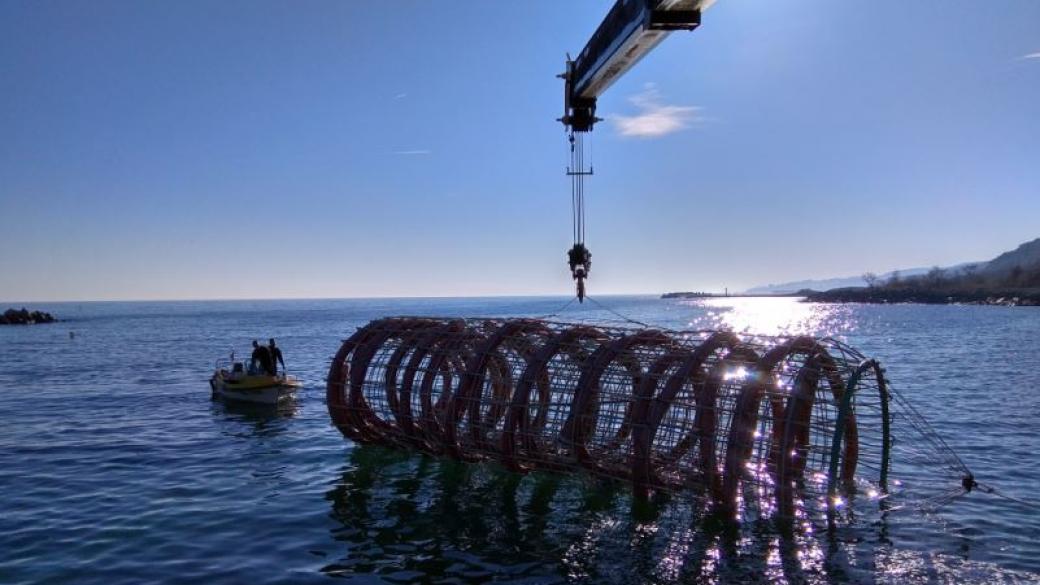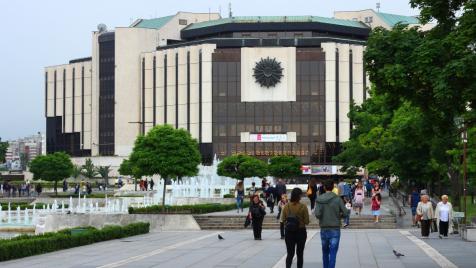The Unexplored Waters of Entrepreneurship in Varna.
The city does not have a developed environment for innovation and enough incentives for start-ups yet

© ECONOMIC.BG / Sea Harmony
Изкуственият риф \"Pisa Reef\" на Sea Harmony се пуска по вода, преди да бъде изтеглен до мястото за потапяне край Кранево
Varna attracts tourists and students, but many other things happen in the city that nourish or stifle entrepreneurship. My meeting with several entrepreneurs from the city indicated the presence of opportunities, both the positive trends and the prospect of an active regional entrepreneurial community.
“There have been attempts to create an incubation environment for start-ups, but the actions are sporadic and mainly related to the availability of EU funds. The local big business does not have the traditions and the inclination to support the development of innovations” – this is how the serial entrepreneur and manager from Varna, Daniel Yordanov, defines the economic environment in the city. He develops and manages businesses in the fields of industrial blasting and mining, intellectual property, waste management and others.
Silvia Stumpf, Chairperson of the Varna Business Agency Association, agrees that Varna remains far from the intensity of entrepreneurial activity in smaller cities in other countries. According to her, contrary to the expectations related to the presence of many universities in the city, Varna is not a “cradle” of independent high-tech projects. Silvia has 20 years of experience in business support projects and initiatives. “There are many start-ups in digital marketing, software and blockchain, but we are far from the prospect of becoming a start-up city. Communities are not numerous, and shared work spaces are counted on the fingers of one hand,” she explains.
Arman Sarkisyan, founder of Sea Harmony, a company that develops innovative aquaculture technology, adds that the start-up community is still emerging, but there are good prospects for tourism and international trade, for maritime business. Sea Harmony is an example of a promising technology company, but in general, all three of my interlocutors believe that Varna relies more on the low-tech, traditional sectors – ship repair, outsourcing and IT services, hotel industry, food and cosmetics production, construction services and real estate trading.
“Varna is a geographically limited area due to the fact that it is located at the one end of Bulgaria and borders the sea to the east. This leads to an increase in transport costs for the supply of goods and services inland, and at the same time limits the local market to the east only by water. Many foreigners who live temporarily or permanently in Varna, the presence of several large universities and many tourists determine the options for entrepreneurship,” Daniel explains.
Silvia Stumpf and Arman Sarkisyan
According to Silvia, there is no local business angel community or open and accessible start-up development territories, despite the city’s developed university environment. “There are talks on creating a collaborative digital innovation hub between institutions, the Academy and the big business, but there is no working project. Many students complete multidisciplinary disciplines with health tech projects, for example, which remain unrealized due to the lack of scientific infrastructure,” she says. Probably, this is the reason why digital transformation of local businesses is being made in pieces, as Silvia says, but it is inevitable for the successful development.
Daniel develops a service to support such innovations, which very often reach the patent registration level, but are never realized on the market. Some of the problems are related to the access to proper markets, and other – to the internal organization of investment ventures. “The market environment does not allow higher prices for products and services, but at the same time, we are fighting for every qualified person on an international level. This fact puts producers of regional products and services in a position to work with either not-so-qualified personnel or constantly invest in technological equipment that does not require human intervention,” he explains.
The ORTO technology of SEA Harmony is an example of a successful technological project that aims to support the Kranevo area as well. Arman says that he is working on the first full-scale reef-type aquaculture farm and is looking for funding to build a serial production plant. “This year, we successfully completed a Phase 1 project on Horizon 2020, being only the tenth approved Bulgarian project. We will submit a Phase 2 project by the end of the year.”
He explains that in addition to training and knowledge, an entrepreneur must invest in contacts. He consulted mentors from the region but turned to other communities for funding because of the amount of the funds. But at the Varna InnoWave forum, he met investors, experts and other start-ups. “The participation of a start-up in such a forum could be all they need, as long as they manage to implement it properly. The Varna start-up community should work to define benefits that will keep start-ups growing and creating value on a regional level, rather than being drawn to the most developed economic centre in Sofia, he added.
According to Silvia, start-up events attract more high-school students than university students and real entrepreneurs. They, on the other hand, are losing out because of the weak interaction between the business and the universities, which could help them financially, as well as their internal desire to develop their own businesses, which could lead to the overall growth of the region. “Usually, it is the companies that support their future staff through scholarships, but long-term thinking must be adopted for creating leaders who can develop companies with complementary products and services for those companies that fund the curriculum,” Daniel says.
Silvia adds that there are unused opportunities to develop such relationships. She hopes that “young and energetic entrepreneurs”, as described by Daniel, who develop innovative projects in the field of IT technologies and services, will find support for their developments within the framework of the North-East Business Pre-Accelerator project, which she created with European funding together with partners. It aims to increase the number of “digital companies that help low-tech businesses thrive through digitalization.”
Daniel ends the conversation with the words: “Bulgarian entrepreneurs should focus on high quality and unique products that will guarantee them a market share, regardless of the price and the place of production. The place of registration of a company is a conditionality determined by the residence factor.


